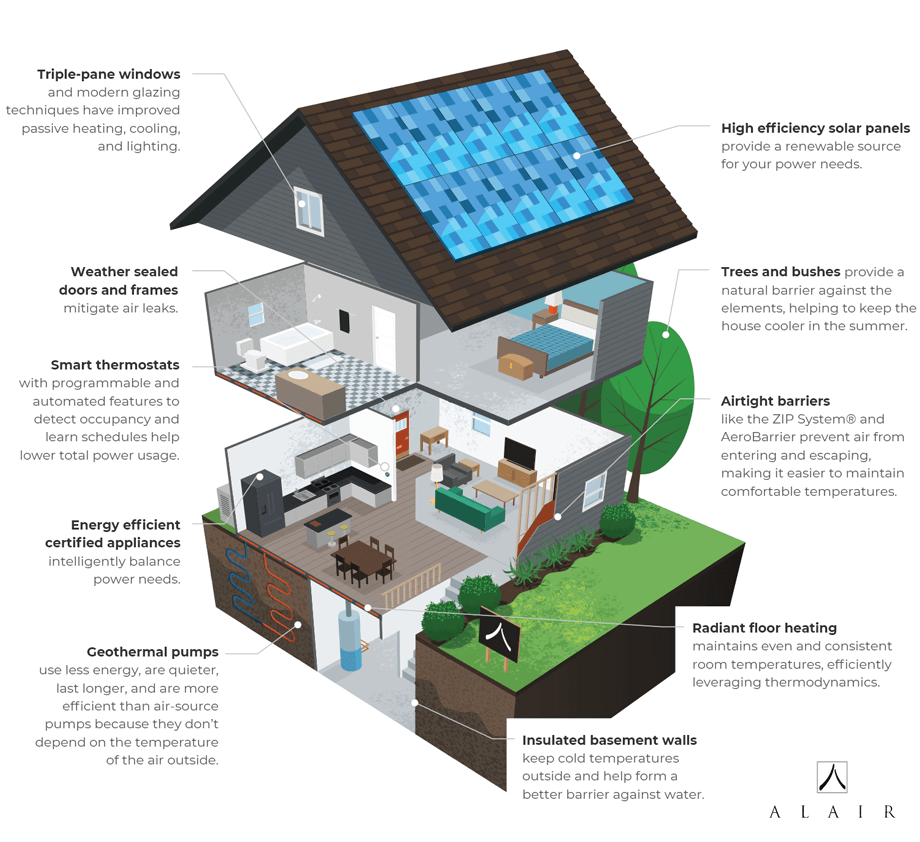88YTY News Hub
Stay updated with the latest trends and news.
Why Your Home Should Be on a Diet (Energy Diet, That Is)
Trim your home's energy use and save big! Discover simple tips to put your home on an energy diet for a sustainable lifestyle.
10 Easy Ways to Cut Energy Waste at Home
In today's eco-conscious world, cutting energy waste at home is not just a smart move for your wallet but also for the environment. Here are 10 easy ways to reduce energy consumption in your household:
- Unplug Electronics: Many devices consume energy even when turned off. Unplug chargers, gadgets, and devices when they are not in use. Consider using power strips for easy management.
- Switch to LED Bulbs: Replace traditional incandescent bulbs with energy-efficient LED bulbs that use up to 80% less energy. They also last significantly longer, which translates to savings over time. Learn more about the benefits of LED lighting here.
Additionally, making small changes in your daily habits can lead to significant energy savings:
- Use Smart Thermostats: Investing in a programmable or smart thermostat can help you better manage your heating and cooling. Set it to lower temperatures when you're not home. Visit this page for guidelines on setting your thermostat wisely.
- Seal Up Drafts: Check windows and doors for gaps. Sealing these drafts can prevent heat loss in winter and keep your home cool in summer, requiring less energy for heating and cooling.

The Benefits of an Energy Diet: Save Money and the Planet
Adopting an energy diet is not only beneficial for your wallet but also for the planet. By reducing your energy consumption, you can significantly lower your utility bills. Simple actions such as switching to energy-efficient appliances, utilizing smart thermostats, and implementing better insulation can lead to dramatic savings. According to the U.S. Department of Energy, households can save an average of 25% on energy costs just by making small changes. Furthermore, using less energy means less reliance on fossil fuels, which reduces greenhouse gas emissions and helps combat climate change.
In addition to financial savings, an energy diet contributes to a healthier planet. By cutting down on energy use, you not only reduce your carbon footprint but also decrease the demand on natural resources. Engaging in sustainable practices, such as utilizing renewable energy sources or adopting a more sustainable lifestyle, can result in a significant positive impact on the environment. For more tips on living sustainably, visit NRDC's guide on energy conservation. By embracing an energy diet, you're taking important steps towards a sustainable future while also saving money in the process.
Is Your Home Overweight on Energy Use? Signs to Watch For
Many homeowners are unaware that their residences may be overweight on energy use, leading to skyrocketing utility bills and an increased carbon footprint. If you notice a few telltale signs around your home, it could indicate that it's time to reassess your energy consumption. For instance, increased energy bills month after month can be a clear warning. Additionally, if your heating and cooling systems are working overtime, say, running longer than they should to maintain a comfortable temperature, it suggests inefficiencies that need fixing. Conducting a home energy audit can help identify areas of concern.
Another sign that your home is overweight on energy use is noticeable drafts or inconsistent temperatures between rooms. If you find that certain areas of your home remain unusually cold or hot, it may be attributed to poor insulation or air leaks. Furthermore, the condition of your appliances matters; older models tend to consume more energy. Regularly checking energy usage through an energy monitor or upgrading to energy-efficient appliances can significantly reduce wastage. For more tips, consider visiting Energy Star for resources on energy-efficient upgrades.